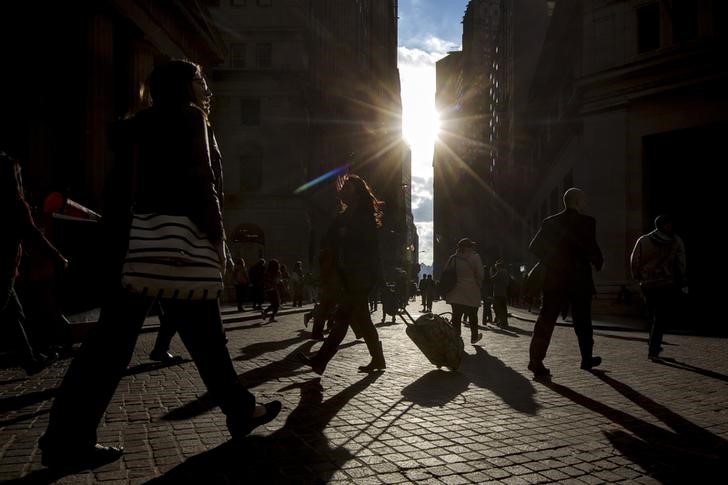Oklo stock tumbles as Financial Times scrutinizes valuation
Investing.com - A recent divergence in some parts of the U.S. economy is expected to remain in place unless there is a "substantial" decline in rates, according to analysts at Wells Fargo.
In a note, the analysts including Ohsung Kwon suggested that the world’s economy has become "K-shaped," a type of post-recession recovery in which industries and regions rebound at different times or magnitudes.
Recently, they argued, the trend has become more apparent since the launch of OpenAI’s ChatGPT chatbot in late-November 2022 ushered in a boom in enthusiasm around the potential of artificial intelligence.
Although ChatGPT’s emergence was predicted to fuel an uptick in productivity, large-cap companies, many of which are heavy investors in AI, have led a 5.5% gain in output, data from Wells Fargo and FactSet found. Real revenue per worker in the small-cap-focused Russell 2000 index, meanwhile, has fallen by 12.3%.
Elsewhere, among consumers, lower quality credit loans have a 7.1% delinquency rate, compared to just 2.9% for higher quality loans, the analysts said.
Since a metric of U.S. business activity from the Institute for Supply Management dipped in contraction territory in late-2022, industrial firms which churn out complex products like software, especially those relying on AI, have also outperformed so-called "short-cycle" industrial names that concentrate on items that are more straightforward or low-risk to produce, the analysts added.
Gold has also soared in the wake of a flood of stimulus measures during the COVID-19 pandemic, they noted, adding that U.S. Treasuries, on the other hand, have "languished."
"Winners keep winning in this K-shaped economy," the analysts wrote. They flagged that, unless the benchmark 10-year Treasury yield drops closer to 3% than its current level of just under 4% -- and subsequently pushes down interest expenses, opens up access to capital and powers an inflection in business activity -- these trends should continue.
Against this backdrop, they recommended that investors stick with "winners until lower rates drive a sustained rotation" in the economy and markets.
